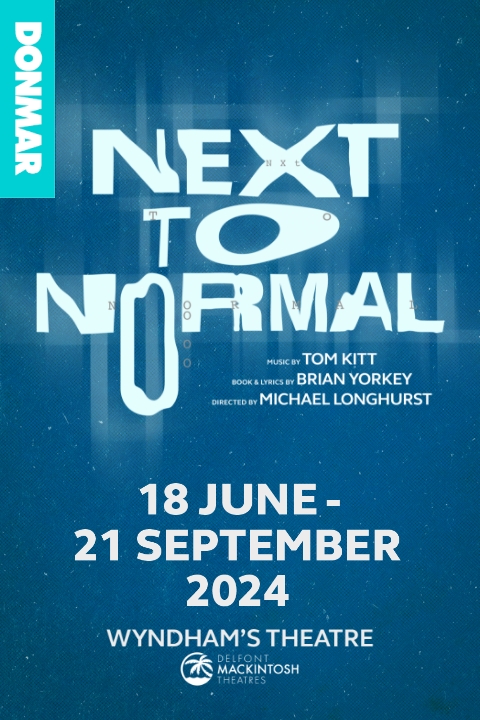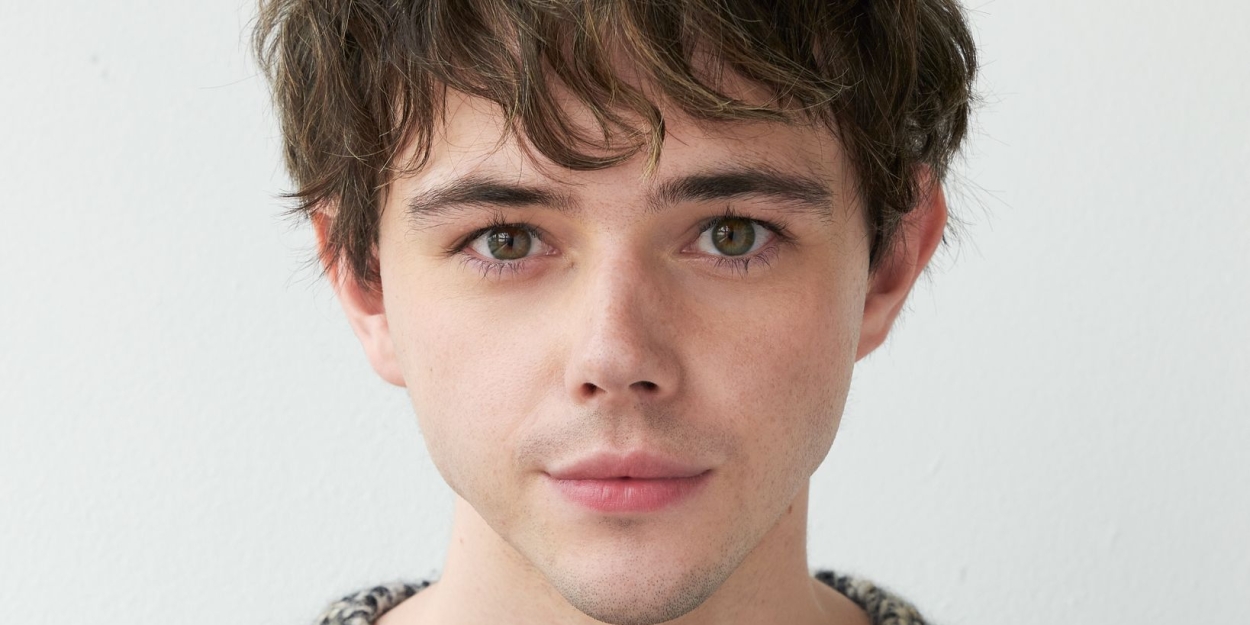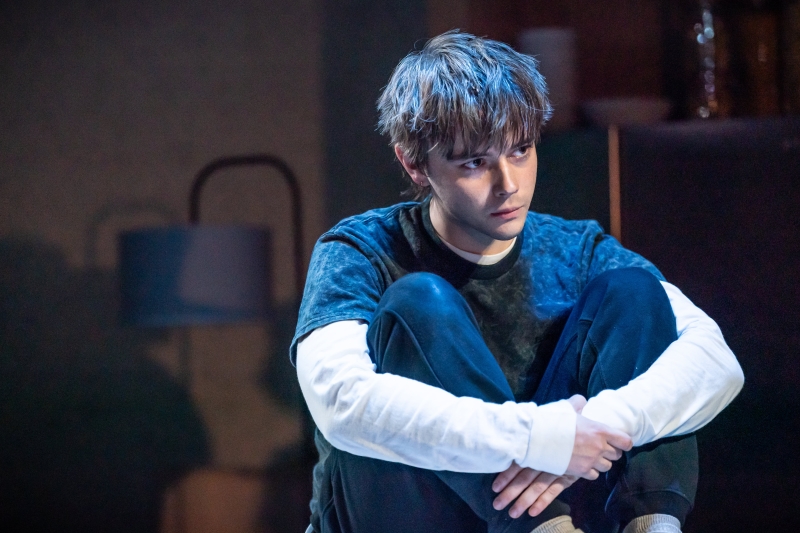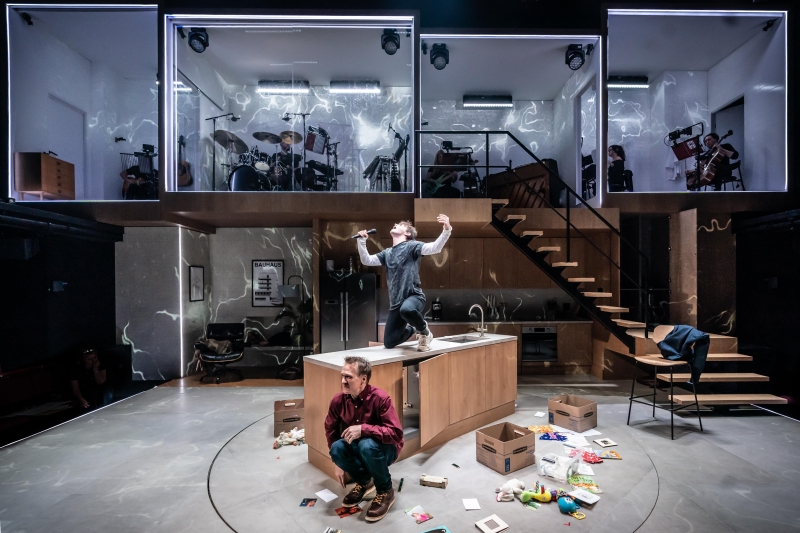Interview: 'It's a Story About Family and Hope': Actor Jack Wolfe on Fandom and Emotional Intensity in NEXT TO NORMAL
'We're all the Goodman family, we all have connections to this, and people will feel seen.'

|
|

The Donmar Warehouse’s hit production of Next to Normal is coming to the West End on 18 June. The show tells the story of the Goodman family and is “an intimate exploration of family and illness, loss and grief.” Caissie Levy, Jamie Parker, Jack Wolfe and Eleanor Worthington-Cox return to the show to play the family.
BroadwayWorld spoke with Wolfe about bringing Next to Normal to the West End. We discussed what it has been like to join the show as a fan of Next to Normal, the importance of mental health both on stage and off and what he hopes audiences take away from this production.
How did you first get involved in the world of theatre?
I've loved theatre all my life! When I was a kid, I was very, very lucky if, one Christmas, my parents would give me tickets to see something locally, or maybe even in London. My parents love going to the theatre too, so I was very lucky to have that as part of my upbringing. But really, what changed the course of everything for me was I joined a youth theatre on a Saturday morning. That gave me three hours of acting training within the community and completely changed my life. So that's where it really began for me, and it's never really gone away!
And what made you want to be a part of Next to Normal?
Well, funnily enough, going back to those years where I was beginning my relationship with theatre, I was just at the perfect age when Next to Normal first premiered on Broadway [2009]. For me, in this tiny, tiny town in the UK, Broadway was the Tony Awards performances on YouTube a couple of days after the ceremony. Five-minute performances. The only access so many people in my generation had to what Broadway was, and it could all be distilled down to those couple of minutes.
I remember both Spring Awakening and Next to Normal having really profound effects on me as they were the first ones I discovered by myself. Next to Normal . . . I'd never seen something that electrified me, that matches that performance - it felt dangerous and exciting. I hadn't seen a performance with that much humanity before, so it really inspired me. I was desperate to see it, but it never came to the UK. I took in as much information as I could, I learned all about the workshops, Feeling Electric [the original 10-minute workshop from 1998] and all of this because I was a real fan of the show.
When it came to London, I actually booked tickets to see it and found out a couple of days later that I had an audition for Gabe! [Laughs] Which really surprised me because I never in a million years thought that they would see me for that role. I'm overjoyed that they did. So I come to Next to Normal with a huge amount of reverence for the original production. It's been so exciting to be able to dismantle that and then provide this new production for this new generation. It's been really cool!
And for those unfamiliar with the show, can you tell us a bit about your role within it?
It's tough to avoid spoilers! [Laughs] Next to Normal is a show about family. The show is about invisible threads between family members, especially those dealing with pretty tough mental health crises and challenges. Diana Goodman is the mother of the family and she has bipolar II, complicated grief and a whole web of mental health challenges. And the rest of the family do as well. It's about how they come together and come apart and what this really means. It's told in a very blunt way, it's incredibly human. Humanity is the theme of the show. I play Diana’s son, who causes quite a lot of angst and anxiety and represents what could be quite a challenging relationship between himself and his mother.

What was it like premiering this show at The Donmar Warehouse?
It meant the world to me! The Donmar Warehouse is the most exciting, challenging space. They always programme such exciting work. For those who haven't been there yet, it's incredibly intimate - what makes it so special is you're only ever a couple of metres away from the actors on stage.
For a show like Next to Normal, that provides you with an incredibly intense theatrical experience. In our production, it's as if you're invited into the Goodman’s kitchen with them to experience this story take place. It's an amazing building. It's also an incredibly kind building. Mike Longhurst, who was the Artistic Director as well as our director of the show, led that building with a lot of heart and kindness. Making a show like Next to Normal, that's really what you need. So it's amazing!
I'm really excited about the transfer to London because it means that, practically, more people will get to see it - the Wyndham's Theatre has a bigger capacity. So I'm excited to invite more people in and I hope that it remains as intimate and intense as it was before - I'm pretty sure it will!
You mentioned how you found Next to Normal through the Tony Awards performance. What was it like performing at the Olivier Awards?
It was the most petrifying day of my life, to be fully honest! [Laughs] It was like nothing I've ever experienced before. I'm so grateful that it existed, I'm so grateful for that day and I'm so grateful that our show had that recognition. I have to admit, there was a part of me that hoped that, maybe one day, this might be a performance that somebody sees and then ignites their love for Next to Normal if they found it interesting or curious.
But personally, I'll always remember holding Caissie Levy's hand backstage before she's about to go on to sing “I Miss the Mountains.” Backstage at the Royal Albert Hall, Caissie, Elle [Eleanor Worthington-Cox] and I, before we went on, had a big group hug as we always would do when we did the show. We had to send Elle to the other side of the stage! [Laughs] So Caissie and I were over on the other side of the stage, sending her lots of virtual love. Caissie is one of the kindest people I've ever worked with. She knows exactly when to reach out and grab your hand if you need it, without you even asking. She did a lot of that for me that night. So that's what I'll always remember from that event.
This is such an emotionally intense piece of work. How do you deal with those emotions both on and off stage?
It's hard! It asks a lot of its cast and its audience as well. It's a big sharing of emotional complexity. There was a lot of work done within the room to make us work safely as a cast, our co-director and movement director, Ann Yee, was so fundamental in that process. She created this incredibly safe, incredibly supportive space. And she's amazing at introducing actors and collaborators together through a physical language - you're then always able to look out for each other.
I talk about the invisible threads of the family, and genuinely within our show, the movement director set up these very complicated, intense, invisible threads between members of the cast, so that onstage every night, it's always electric and really physical, and we know exactly where each other are, we play the space between us as a physical character. So that was really exciting. And practically as well, we were lucky that whilst we were at the Donmar, and also transferring our producers were partnering with a charity in the UK called Applause for Thoughts, which provides therapy and access to therapy, especially for people within the arts. So we had a member of that charity come in and provide three free check-in sessions if we ever needed them, which we did. I think that that will continue for the rest of our run, too.
There was a huge culture of safety and looking after the cast and also for the audience. They were all sent information packs and access to support after the show. Performing this show in 2024, after Covid, it brings a different conversation about mental health and what we're inviting audiences in to see how and we can look after them afterwards, too.

And what is it like interacting with fans of Next to Normal, still being a fan of the show yourself?
It’s always special to have those conversations at stage door with people who feel this show intensely. Like all shows, this really reaches out to a specific group of people. I think our show can appeal to so many different people, but there are people who come back all the time and it's such a special relationship between us, and one that means a lot to me.
I also love speaking to people who have seen other casts of the show and other productions of the show internationally! Next to Normal has such an international fan base and different countries performing in different languages. Loads of people who had seen the show in Germany or Italy would come to London to talk about our interpretation of the show. There's so many ways that you can play the Goodman family and it's been fascinating to find out the different ways that people have interpreted the show! It's amazing to be able to talk to people who love it as much as I do.
What is it about Next to Normal that you think has given it such a life since its Broadway run?
I think it has a level of humanity that is really specific to the show - you can tell that it's made with a lot of love. Tom Kitt [Composer] and Brian Yorkey [Writer] are both incredible artists themselves, and you can tell that so much love was put into the story. It also is a story that, post-2020, we're able to discuss now that it really does affect us all. It's not a story about “those people in that house” - it's a story about all of us. Any character within the show will ignite something within someone else. The music is amazing! It's intense and it's accessible, but it's never patronising. The show does a really great thing of never patronising its audience. It tells the story in a brutally honest way. It's still funny, it still has a lot of moments of light and of hope, but people do see themselves reflected in it in a stark way. I think that's why it’s stayed alive so long.
What do you hope audiences take away from this production of Next to Normal?
For people who have never seen Next to Normal before, I hope that they're able to come and enjoy that moment of sharing an intimate experience together with an audience. It's a story about family and hope. I would love for it to begin those conversations if they feel like they haven't been able to have those yet. If it begins that journey to being able to be frank with each other about the way that we're feeling, that would be amazing. For people who know the show already and are excited to see a new production, I hope that they're able to see a production where they find new details, layers and texture within a piece that they love so much.
We updated a couple of details within the show, a couple of lines and to bring all of the medical language for example, up to date to where we're working now in 2024, and updated the relationships between characters in a more intimate way that feels within the mid 2020s. So I hope they're able to see a Next to Normal that feels familiar, but that's going to challenge and excite them in a new way.
Do you have any particular favourite scenes either to be a part of or to watch?
A really cool thing about this production, and again, I don't want to spoil anything for any viewers, but there's a lot of time in the show where it becomes quite fluid within our production. Characters will stay on stage a lot longer than they might have originally and are able to view scenes that they might not have been privy to before. That's really exciting to discover.
I love hearing all my friends sing their songs! [Laughs] The first time I heard Caissie sing “I Miss the Mountains” blew my mind in the rehearsal room, and Jamie [Parker] singing “I’ve Been” brings so much humanity to it. And Eleanor, who plays Natalie, is just this beautiful bird-like person and seeing her create that role again, fresh, has been amazing. I think my favourite moment in the show will always be “Light” at the end. There's something very special about all of the storylines coming together to that hopeful moment.
And finally, how would you describe the show in one word?
I would describe the show as human and I would describe our production as electric!
Next to Normal runs from 18 June to 21 September at Wyndham’s Theatre.
Comments
Videos

